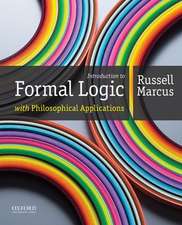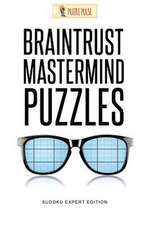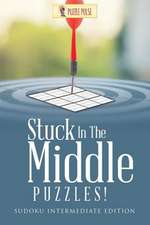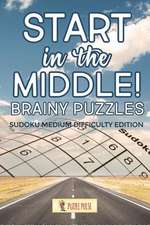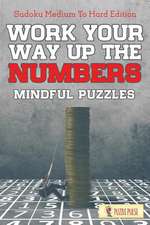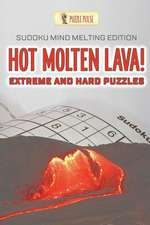Games, Strategies, and Decision Making
Autor Jr. Harrington, Joseph E.en Limba Engleză Hardback – 25 sep 2014
Preț: 494.90 lei
Preț vechi: 737.37 lei
-33% Nou
94.70€ • 99.14$ • 78.36£
Carte disponibilă
Livrare economică 15-29 martie
Livrare express 01-07 martie pentru 112.55 lei
Specificații
ISBN-10: 1429239964
Pagini: 592
Dimensiuni: 212 x 257 x 32 mm
Greutate: 1.47 kg
Ediția:Revizuită
Editura: Worth Publishers Inc.,U.S.
Locul publicării:New York, United States
Cuprins
PART 1 Constructing A Game 1 Introduction to Strategic Reasoning 1.1 Introduction 1.2 A Sampling of Strategic Situations 1.3 Whetting Your Appetite: The Game of Concentration 1.4 Psychological Profile of a Player 1.5 Playing the Gender Pronoun Game 2. Building a Model of a Strategic Situation 2.1 Introduction 2.2 Extensive Form Games: Perfect Information 2.3 Extensive Form Games: Imperfect Information 2.4 What Is a Strategy? 2.5 Strategic Form Games 2.6 Moving from the Extensive Form and Strategic Form 2.7 Going from the Strategic Form to the Extensive Form 2.8 Common Knowledge 2.9 A Few More Issues in Modeling Games PART 2 Strategic Form Games 3. Eliminating the Impossible: Solving a Game when Rationality Is Common Knowledge 3.1 Introduction 3.2 Solving a Game when Players Are Rational 3.3 Solving a Game when Players Are Rational and Players Know that Players Are Rational 3.4 Solving a Game when Rationality Is Common Knowledge 3.5 Do people believe that people believe that people are rational? 3.6 Appendix: Strict and Weak Dominance 3.7 Appendix: Rationalizability (Advanced) 3.8 Appendix: Strict Dominance with Randomization 4. Stable Play: Nash Equilibria in Discrete Games with Two or Three Players 4.1 Defining Nash Equilibrium 4.2 Classic Two-Player Games 4.3 The Best-Reply Method 4.4 Three-Player Games 4.5 Foundations of Nash Equilibrium 4.6 Fictitious Play and Convergence to Nash Equilibrium 4.6 Appendix: Formal Definition of Nash Equilibrium 5. Stable Play: Nash Equilibria in Discrete n-Player Games 5.1 Introduction 5.2 Symmetric Games 5.3 Asymmetric Games 5.4 Selecting among Nash Equilibria 6. Stable Play: Nash Equilibria in Continuous Games 6.1 Introduction 6.2 Solving for Nash Equilibria without Calculus 6.3 Solving for Nash Equilibria with Calculus 7. Keep 'Em Guessing: Randomized Strategies 7.1 Police Patrols and the Drug Trade 7.2 Making Decisions under Uncertainty 7.3 Mixed Strategies and Nash Equilibrium 7.4 Examples 7.5 Advanced Examples 7.6 Pessimism and Games of Pure Conflict 7.7 Appendix: Formal Definition of Nash Equilibrium in Mixed Strategies PART 3 Extensive Form Games 8. Taking Turns: Sequential Games with Perfect Information 8.1 Introduction 8.2 Backward Induction and Subgame Perfect Nash Equilibrium 8.3 Examples 8.4 Waiting Games: Preemption and Attrition 8.5 Do People Reason Using Backward Induction? 9. Taking Turns in the Dark: Sequential Games with Imperfect Information 9.1 Introduction 9.2 Subgame Perfect Nash Equilibrium 9.3 Examples 9.4 Commitment 9.5 Forward Induction PART 4 Games of Incomplete Information 10. I Know Something You Don't Know: Games with Private Information 10.1 Introduction 10.2 A Game of Incomplete Information: The Munich Agreement 10.3 Bayesian Games and Bayes-Nash Equilibrium 10.4 When All Players Have Private Information: Auctions 10.5 Voting on Committees and Juries 10.6 Appendix: Formal Definition of Bayes-Nash Equilibrium 10.7 Appendix: First-Price, Sealed-Bid Auction with a Continuum of Types 11. What You Do Tells Me Who You Are: Signaling Games 11.1 Introduction 11.2 Perfect Bayes-Nash Equilibrium 11.3 Examples 11.4 Selecting Among Perfect Bayes-Nash Equilibria: The Intuitive Criterion 11.5 Appendix: Bayes's Rule and Updating Beliefs 11.6 Appendix: Formal Definition of Perfect Bayes-Nash Equilibrium for Signaling Games 12. Lies and the Lying Liars That Tell Them: Cheap Talk Games 12.1 Introduction 12.2 Communication in a Game-Theoretic World 12.3 Signaling Information 12.4 Signaling Intentions PART 5 Repeated Games 13. Playing Forever: Repeated Interaction with Infinitely Lived Players 13.1 Trench Warfare in World War I 13.2 Constructing a Repeated Game 13.3 Trench Warfare: Finite Horizon 13.4 Trench Warfare: Infinite Horizon 13.5 Some Experimental Evidence for the Repeated Prisoners' Dilemma 13.6 Appendix: Present Value of a Payoff Stream 13.7 Appendix: Dynamic Programming 14. Cooperation and Reputation: Applications of Repeated Interaction with Infinitely Lived Player 14.1 Introduction 14.2 A Menu of Punishments 14.3 Quid-Pro-Quo 14.4 Reputation 14.5 Imperfect Monitoring and Antiballistic Missiles 15. Interaction in Infinitely Lived Institutions 15.1 Introductions 15.2 Cooperation with Overlapping Generations 15.3 Cooperation in a Large Population PART 6 Evolutionary Game Theory 16. Evolutionary Game Theory and Biology: Evolutionarily Stable Strategies 16.1 Introducing Evolutionary Game Theory 16.2 Hawk-Dove Conflict 16.3 Evolutionarily Stable Strategy 16.4 Properties of an ESS 16.5 Multipopulation Games 16.6 Evolution of Spite 17. Evolutionary Game Theory and Biology: Replicator Dynamics 17.1 Introduction 17.2 Replicator Dynamics and the Hawk-Dove Game 17.3 General Definition of the Replicator Dynamic 17.4 ESS and Attractors of the Replicator Dynamic 17.5 Examples Solutions to "Check Your Understanding" Questions Glossary Index
Notă biografică
Caracteristici
Brings real-world examples to the forefront proving that the game theory permeates our everyday lives
Accessible to all university students
Descriere
Written for majors courses in economics, business, political science, and international relations, but accessible to students across the undergraduate spectrum, Joseph Harrington's innovative textbook makes the tools and applications of game theory and strategic reasoning both fascinating and easy to understand. Each chapter focuses a specific strategic situation as a way of introducing core concepts informally at first, then more fully, with a minimum of mathematics. At the heart of the book is a diverse collection of strategic scenarios, not only from business and politics, but from history, fiction, sports, and everyday life as well. With this approach, students don't just learn clever answers to puzzles, but instead acquire genuine insights into human behavior.

